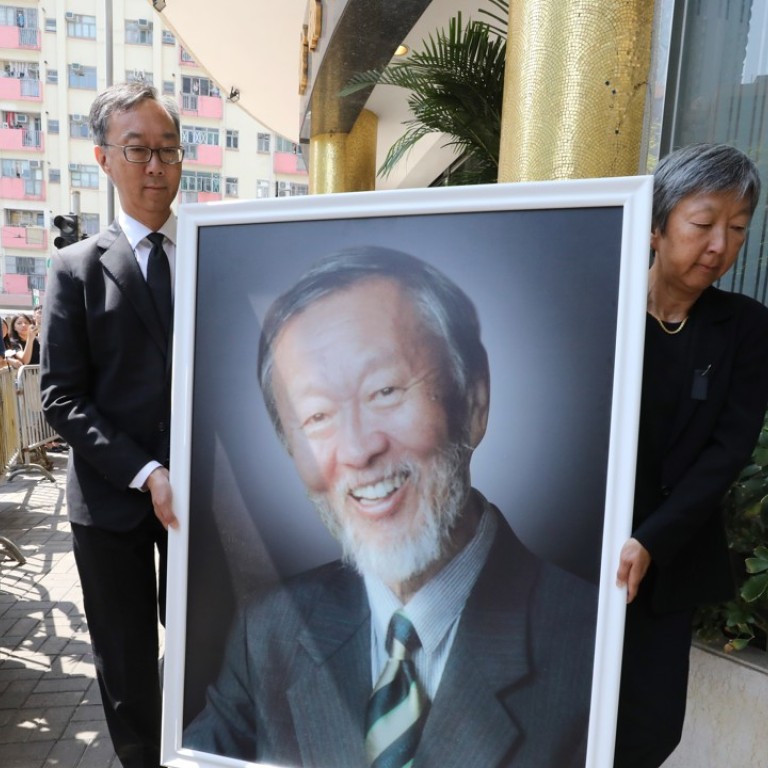
Family and friends of Nobel laureate Charles Kao bid fond farewell at funeral service in Hong Kong
City leader Carrie Lam among eight pallbearers for ‘father of fibre optics’ whose life was remembered for high achievement and personal warmth
Family members and friends bid farewell to late Nobel laureate Professor Charles Kao Kuen on Monday, remembering his smile, cheerful personality and fondness for whistling.
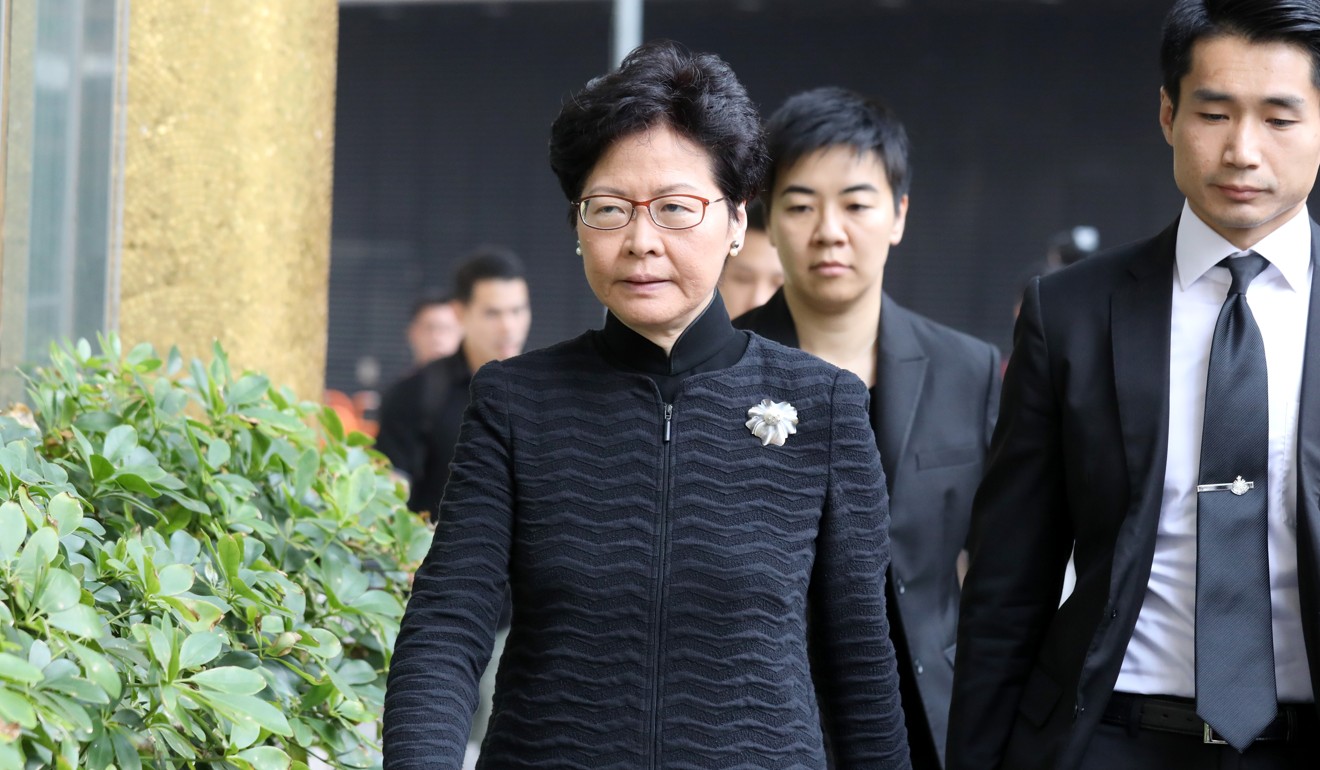
At a ceremony held at the Hong Kong Funeral Home in North Point before the funeral, guests watched a video looking back at Kao’s life. The clip concluded with Kao whistling the tune to Beethoven’s Ninth Sympony, or Ode to Joy. During the ceremony, the Chinese University of Hong Kong Chorus sang one of the late professor’s favourite songs, The Moon Represents My Heart.
Kao was the university’s third vice chancellor.
Prominent environmentalist remembers vision of late Charles Kao
Professor Chen Lian-kuan, of the university’s department of information engineering, recalled spending many Sunday afternoons walking with Kao across campus, where they often whistled together.
“The time I spent with Charles was always like a Christmas holiday: joyful, peaceful, and grateful,” Chen said. “Thank you, Charles, for everything you brought to this world. Your smile, and also your whistling will remain in my heart and in many others’ for many, many years to come.”
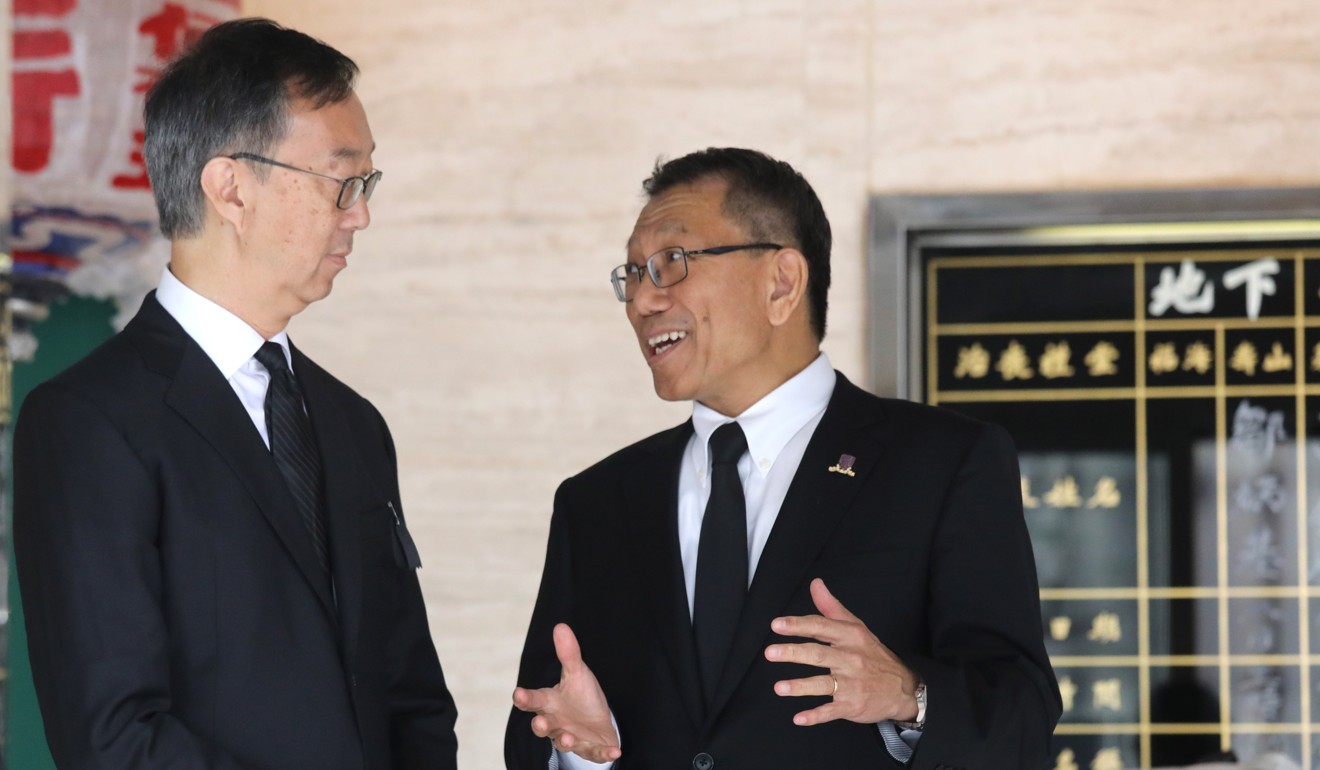
After the ceremony, Kao’s coffin was sent for cremation. His son and daughter, Simon and Amanda, carried his portrait into the hearse. His wife of 60 years, Gwen Kao Wong May-wan, did not speak, but she appeared calm throughout the ceremony.
University vice chancellor Rocky Tuan Sung-chi and former vice chancellor Joseph Sung Jao-yiu were also among the pallbearers.
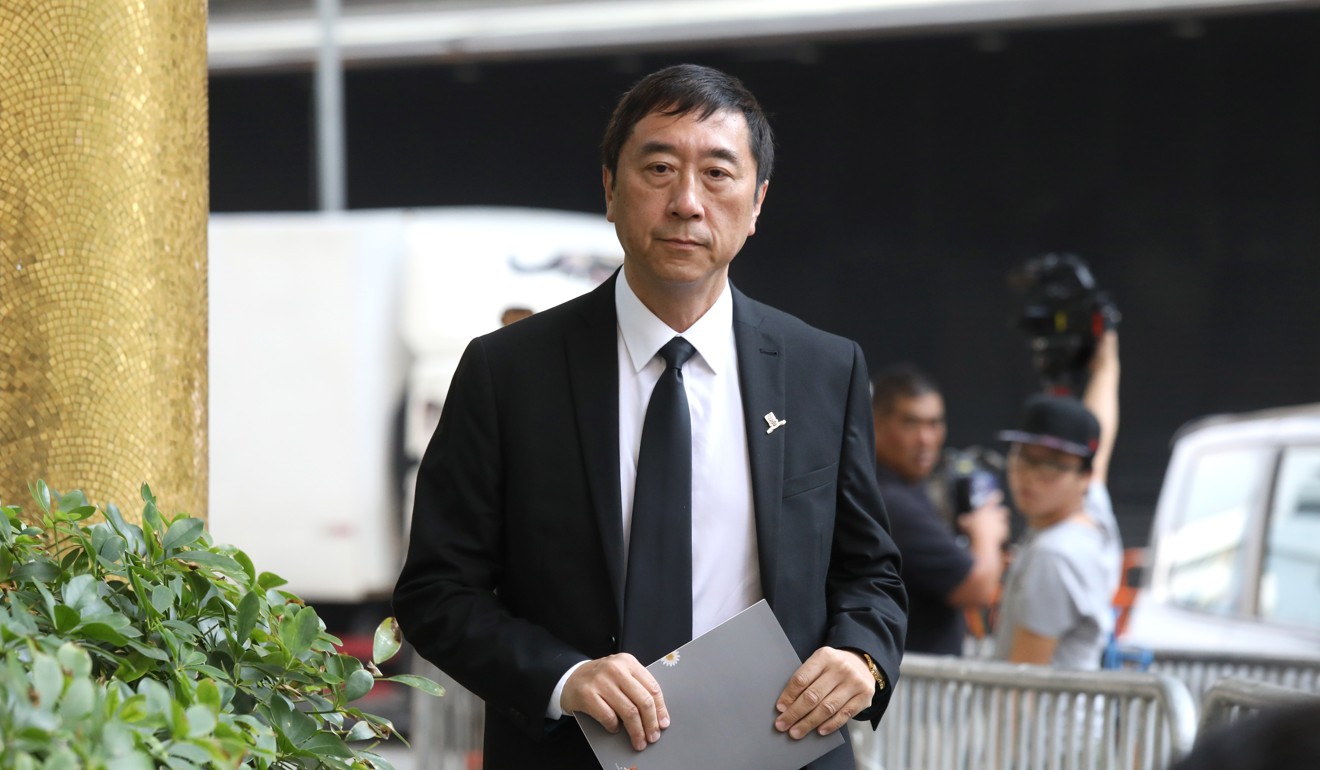
Sung, an expert in gastroenterology and hepatology, said Kao’s research findings had not only benefited the telecommunications industry but also had been “widely adopted by the medical world”.
Describing the endoscope, which now utilises fibre optics technology that Kao pioneered, the former vice chancellor said: “It is indispensable in gastroenterology.” Had the late Nobel laureate patented the technology, Sung added, “patients today might have had to bear much higher medical costs”.
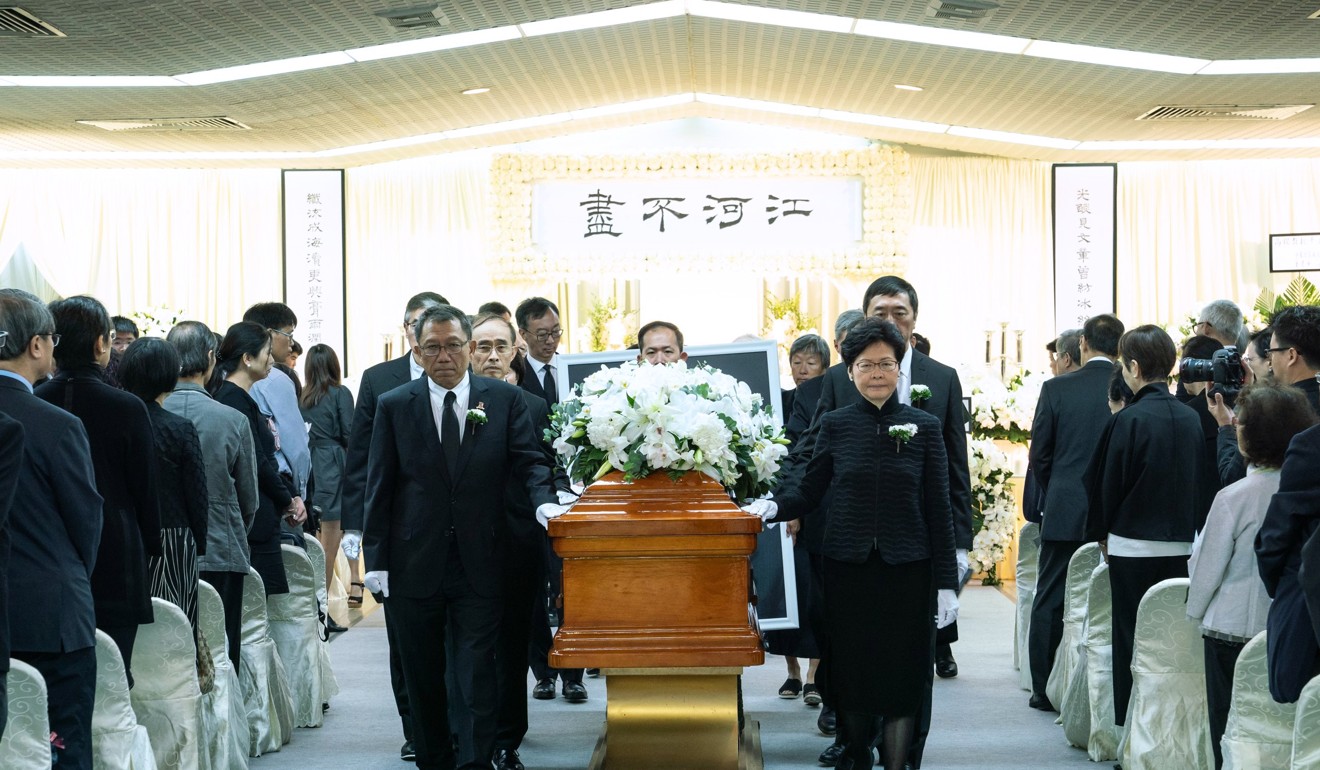
Reverend Francis King, one of Kao’s cousins, spoke on behalf of the family.
“We are saddened that Sir Charles has taken leave from us and this world, but death does not put an end to our relationship with him,” said King, who also served as a pallbearer. “I remember him not just as a Nobel laureate or father of fibre optics, but how he taught me to respect every human being by showing sincere and genuine interest in him or her.”
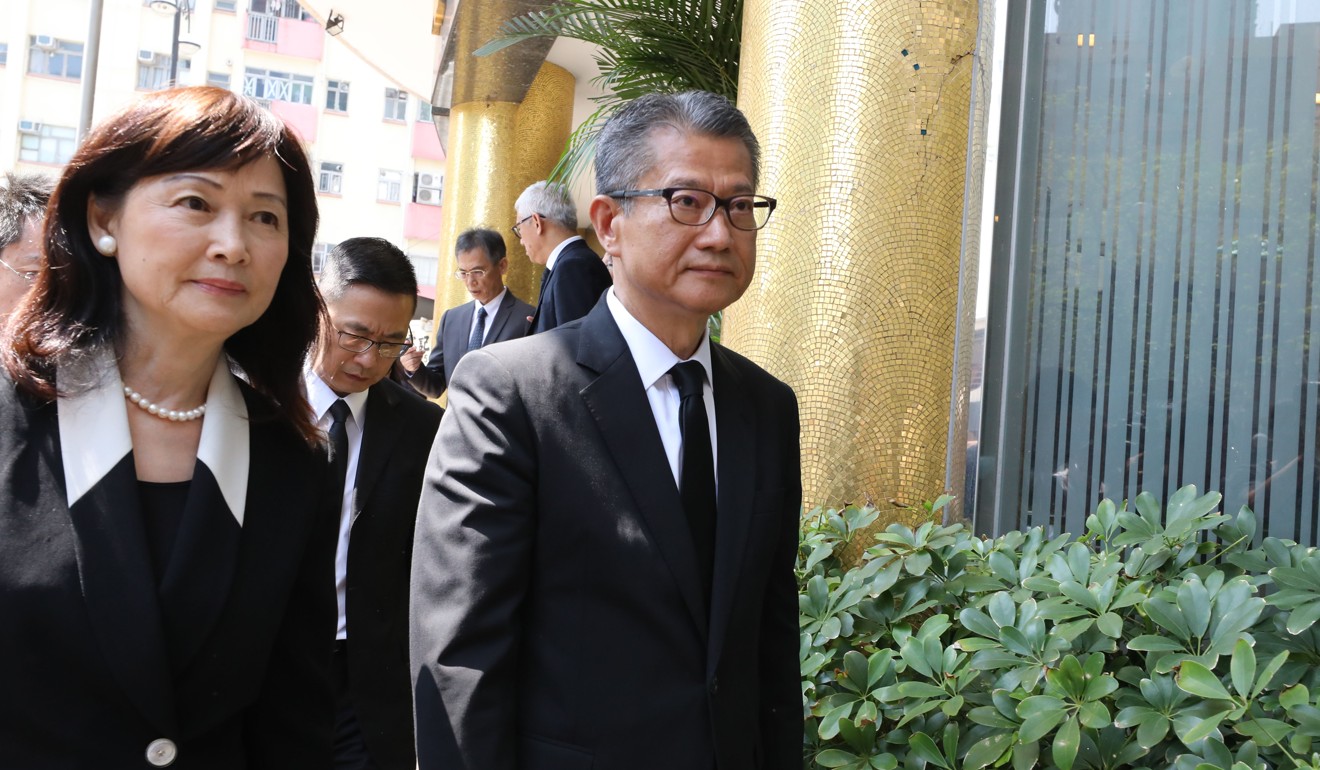
Why it took three decades to recognise genius of ‘father of fibre optics’
He contributed extensively to Hong Kong’s higher education sector, and served as an adviser to Beijing in the city’s handover from British to Chinese rule.

